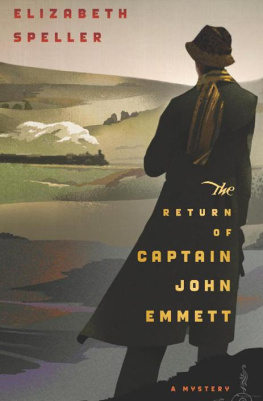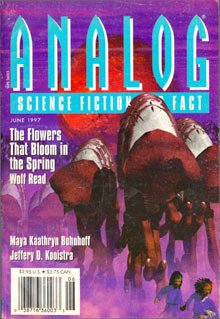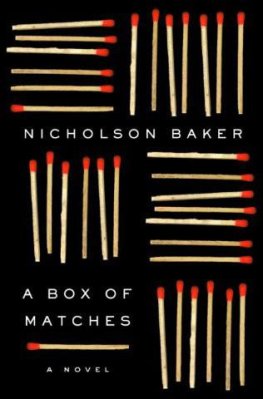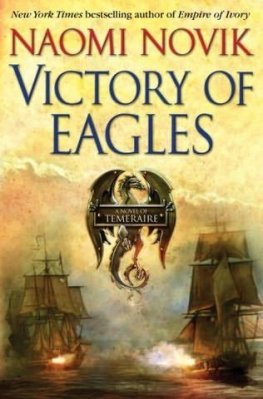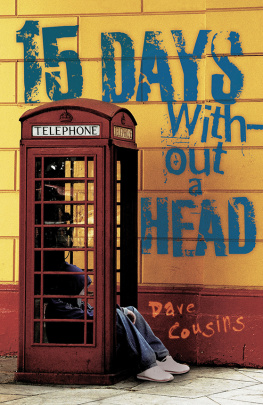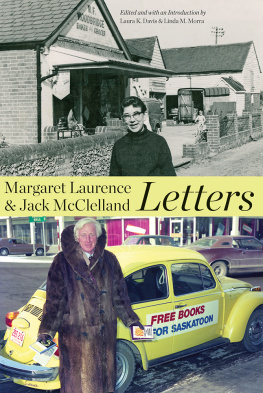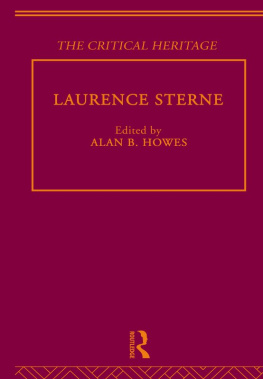Epilogue
WEDNESDAY, 28 DECEMBER 1920
They were about twelve miles from Fairford now, approaching Faringdon. He could tell by the sinking sun that the road was heading almost due west. On the left, stunted willows marked what must be the distant course of the Thames or one of its small tributaries. This was countryside he had once known well. To the south there was a gentle sweep of open land and a wide view through leafless trees rising to hills on the horizon. The temperature had dropped fifteen degrees in the last twenty-four hours and there was a dusting of snow on ploughed fields tinged faintly pink by the sun. To his right, John could see a small mound, almost artificially neat, with a cluster of dark trees on its summit. Somers looked straight ahead as the road curved in front of them. From the trees rose an extraordinary tower. It seemed to stand alone, its castellated battlements clear against the sky.
'What's that?' John asked. 'Is it a castle?'
He remembered from his Oxford days that there had been skirmishes fought around here in the Civil War, although this looked more like a building from a fairy tale.
The general turned his head briefly. 'It's a folly. Faringdon Folly. Just a tower. Decorative but useless. Four empty rooms stacked one upon another,Gothic windows and a marvellous view from the top. When I was young you could see into three counties from up there, though it scared us all to pass by it at night. The boys too in their turn. It's all locked up now, I believe.'
John recalled there having been a folly here long ago when he was a schoolboy. Was this it? It was summer then and everything had looked different.
'Could we go closer?'
'I'll drive as near to it as I can.'
He was grateful that the general asked for no explanation but simply added, 'I think the last stretch is just a bridle path'
They bumped their way up a rutted lane. It was only a few minutes before the car stopped.
'I'd like to get out here,' John said. 'I'll walk the rest of the way.'
The general looked mildly surprised. 'I'll come with you.'
'No. All the way back to Holmwood, I mean. I'd like a chance to think.'
'Good God, man, it's ten miles or more to Fairford. It'll be dark in two hours and bitterly cold by the look of it.'
'Don't worry' John said, evenly. He opened the car door. 'I've walked all my life in all kinds of weathers. Like this'he indicated his greatcoat and borrowed boots'I'll be fine. It's a good road. If I reach Lechlade and it's too cold, I'll put up at the New Inn. Might even get Chilvers on the telephone and make his son fetch me.' He almost smiled. 'I'd like to walk, to be honest. After this, I'll have precious little freedom.' He ran a hand through his hair. No solitary excursions for me for a while, I imagine. I'll see the Folly while it's light and then follow the road back. I feel better than I have for an age. Free.'
The general looked at him. John was very pale, but calm: a man who had finally relieved them both of an intolerable burden.
'Take this' he said, handing him a hip flask, from under his seat. I keep it in case of the car stranding me somewhere inhospitable. Oh, and this'he unwrapped the striped woollen scarf from around his neck. 'It was Miles's scarf. House colours. Still serviceable, you'll find. You'll need it.'
'Thank you.'
John thrust the flask in the less bulky of his pockets. He opened the door, then paused.
'You will tell her everything?' he said.
'You have my word.'
It was certainly cold and he was glad of the scarf. He had once owned one like it, a long, long time ago. He wrapped it round his neck and ears, stuffed his hands in his pockets and started to walk uphill, unsteady on the frozen, roughly ploughed ground. General Somers waited for some minutes, the engine idling unevenly. Then, when John had climbed over a stile and looked back to wave with his right hand, clutching the cross-bar with his left, he turned the car and drove slowly away, bumping down the frozen track.
As he drew closer to the copse, John could see that although it contained a few bare sycamores and elms, it was mostly fir trees, which made it dense even in winter. For so long he had avoided thick undergrowth, afraid of what violent surprise might be concealed there. But there was nothing to hurt him here. The war was over. It was all over.
A slight wind stirred the upper branches. It had been achingly cold in the open and the grass crunched underfoot; once he was in the trees, he had some protection. The ground was softer here and covered in pine needles. By the time he reached the tower, he was slightly breathless; the bitter air, coming on top of the months of virtual confinement, had left him slightly out of breath. All the same it was good to be out of doors.
The tower loomed above him: dark brickwork with greenish streaks running upwards from the base. Had he been here before? He walked right round it and found a single door, heavily padlocked and offering neither protection nor imprisonment. He looked up; the empty, mullioned windows reflected the red sun, giving the impression of afire burning at the heart of the building, while orange-streaked clouds moved slowly overhead. With his head tipped back he had a momentary illusion of the tower falling. He looked down and steadied himself with his fingertips on the damp brickwork. He inhaled deeply and the effort made him cough.
He sat down with his back against the tower. The hefty material of his coat would protect him for a while from the iron cold behind and beneath him. So much cold in his life. He turned his collar up. He wondered where he had left his gloves. The sky, which had been so blue, was turning a soft violet; the fields were losing their colour. Rooks were wheeling about the tallest elms. After some timehe had no idea how long he had been therehe saw a single star come out. Venus. The next time he looked there were hundreds; thousands, in a clear night sky. He could still identify the constellations his father had shown him as a child on night walks in Suffolk. It was Augustthe dog days, his father had said, stroking the panting Sirius on the head. High above him was Pegasus, the winged horse, with Orion the hunter and Canes Venatici, the hounds of the hunt. He felt the close hug the old man had given him as a consolation for his sudden terror of infinity; safety smelled of tobacco and elderly terrier.
How proud his father had been to see him an officer. He thought again. That was wrong; his father had never known of his choice but he had made it, hoping to please him. To make up for leaving him, just like everybody else, and going so far away. War was something his father would, at first, have understood, had he lived to see it. But what followed would have been incomprehensible.
A half-moon shone over the monochrome landscape. Miles away, a few lights marked an unknown hamlet. Had he fallen asleep? His breathing was shallow and his chest hurt slightly. He couldn't really feel his feet. He felt in his pocket for paper and a pencil. Hadn't he had a pencil when he set out? It was gone. Instead he found the hip flask and, opening it with stiff fingers, he took a drink; it was brandy, which made him shudder but warmed him. He set the flask beside him, felt in his other, heavier, pocket and drew out a package wrapped in cloth, which he set on his lap. The rooks had quietened now. A pale barn owl skimmed across the fields, suddenly swooping to reach its prey. From time to time small creatures scrabbled in the darkness around him. Not rats, he hoped. Then a larger animal passed behind the tower: a badger or a fox, maybe, busy in this other world. He was glad to be here. He knew it was where he should be.

